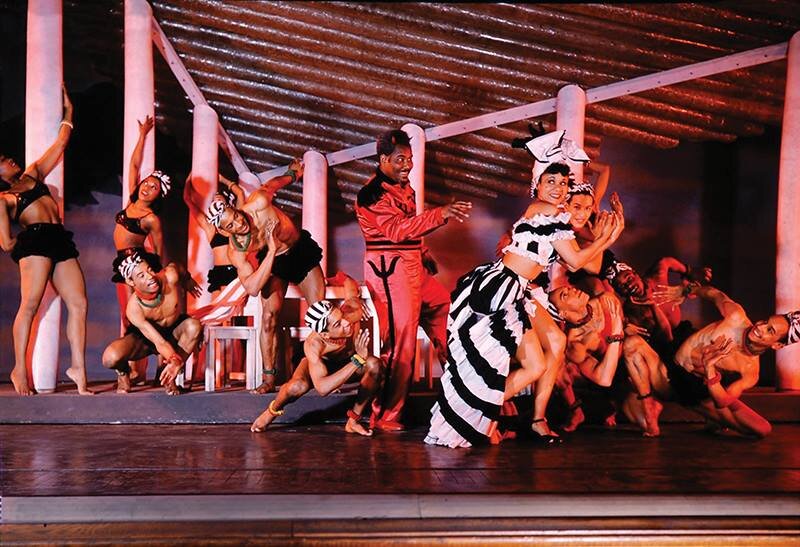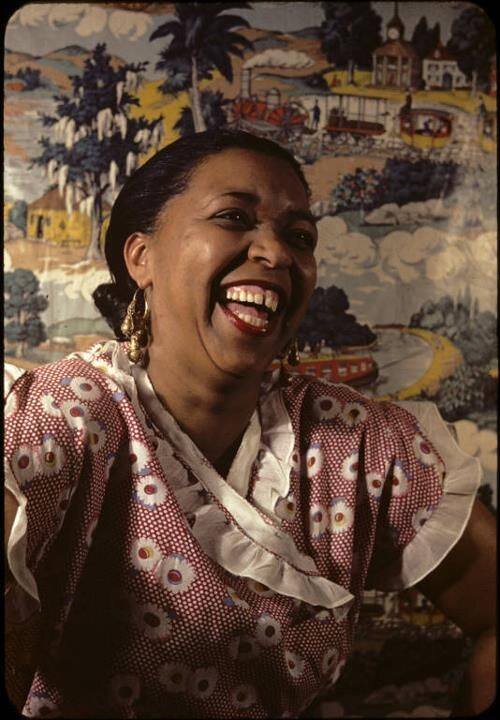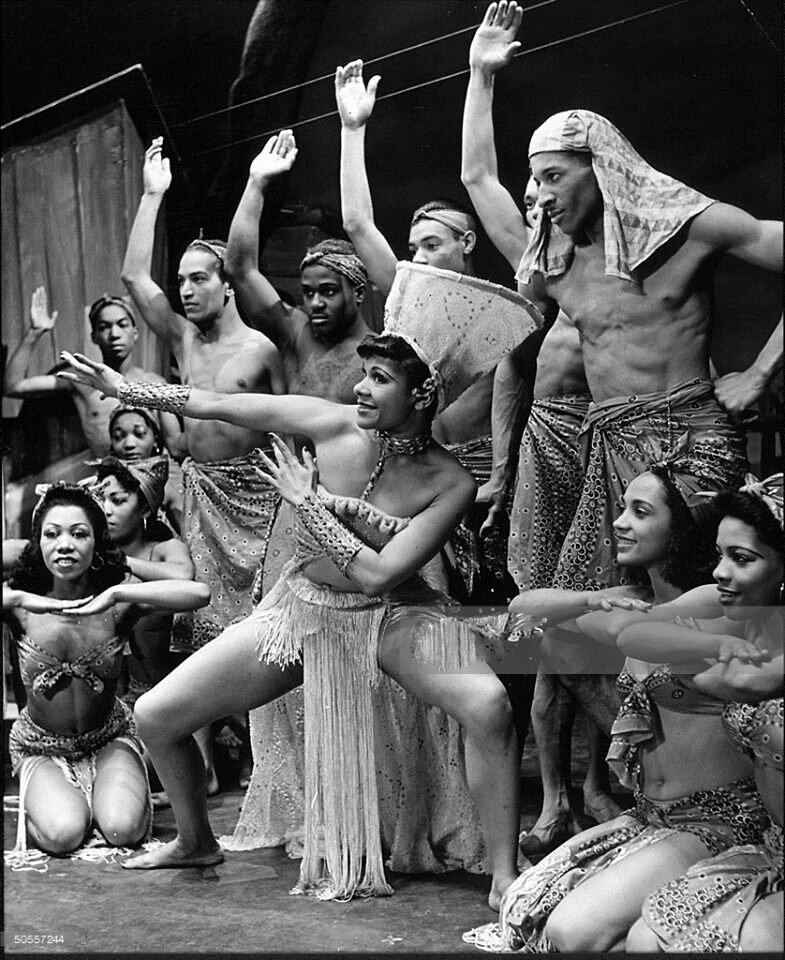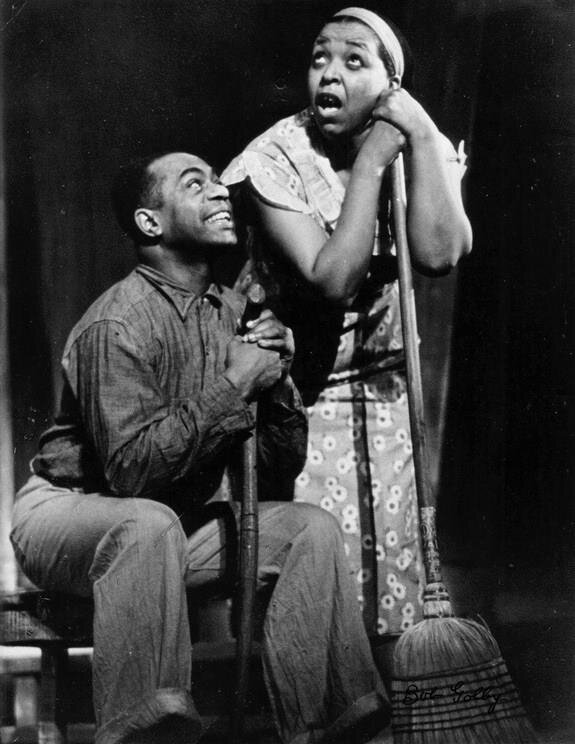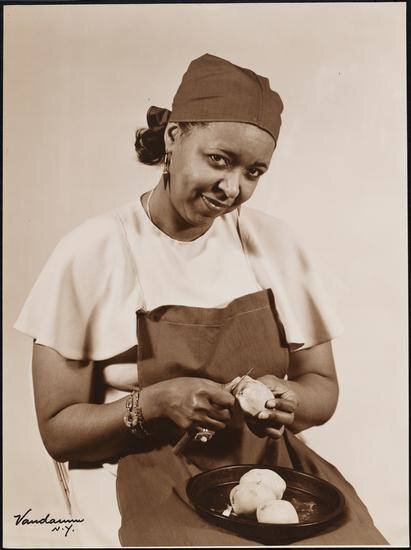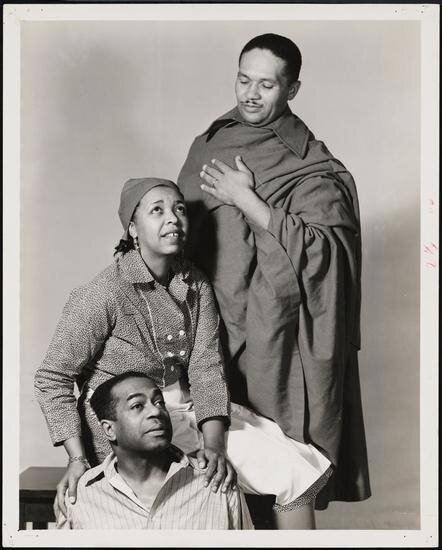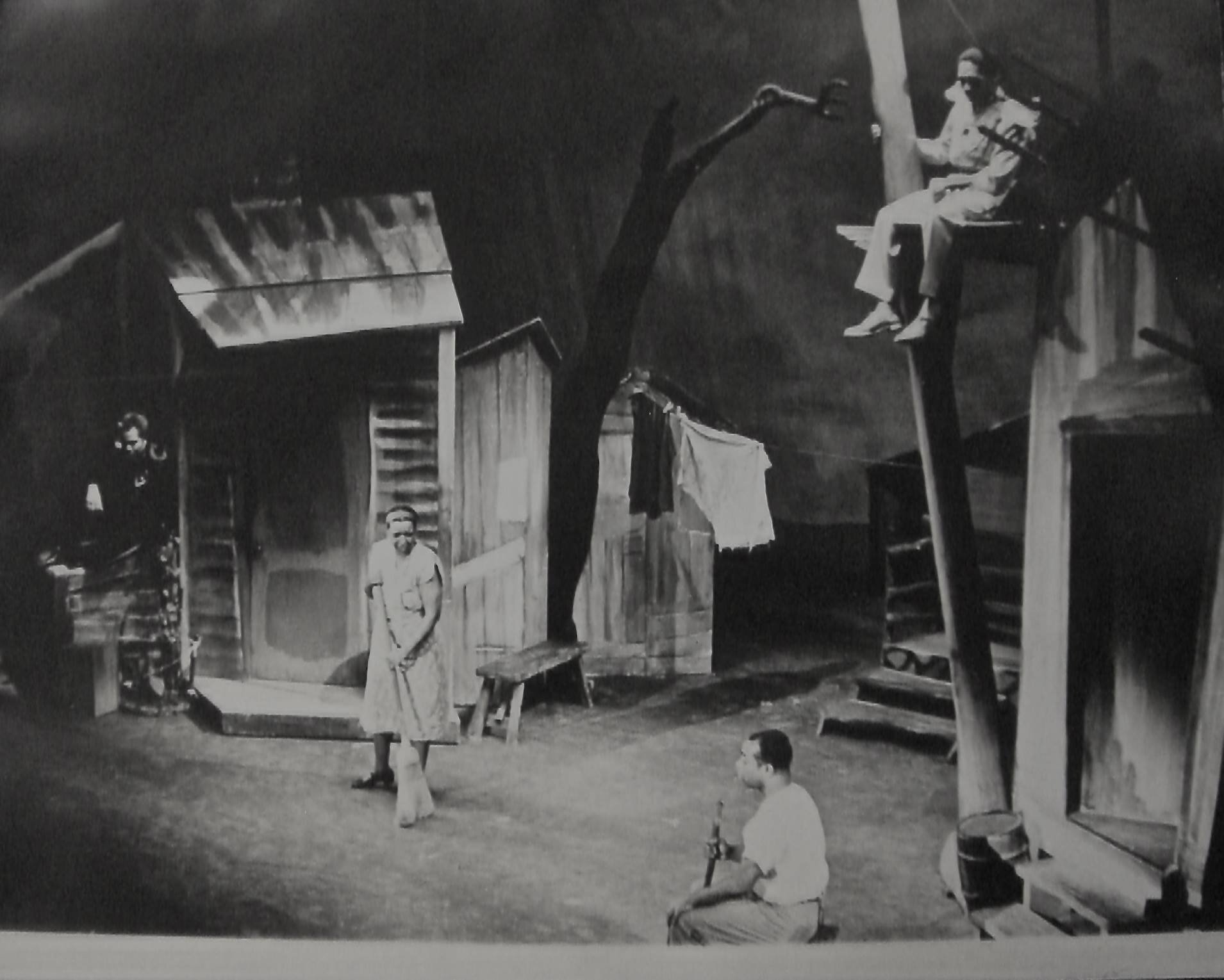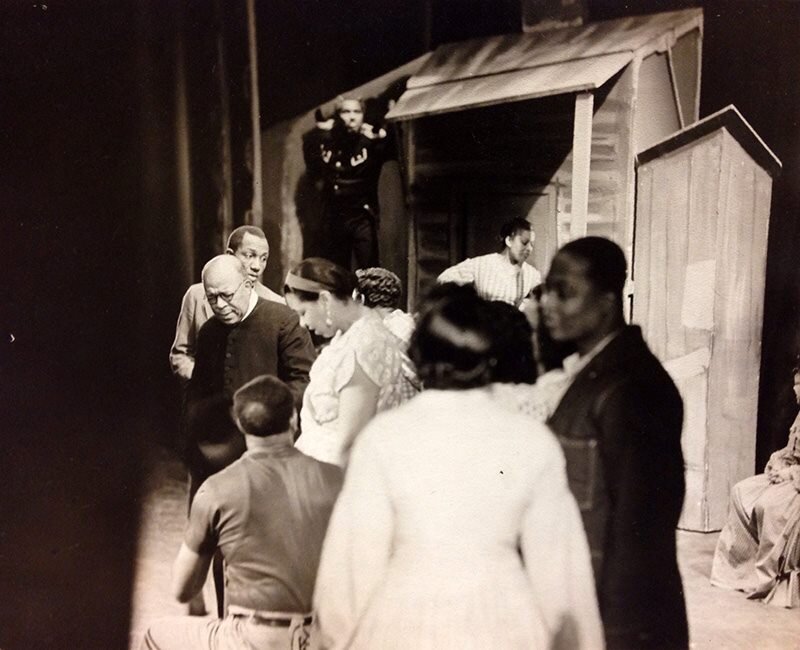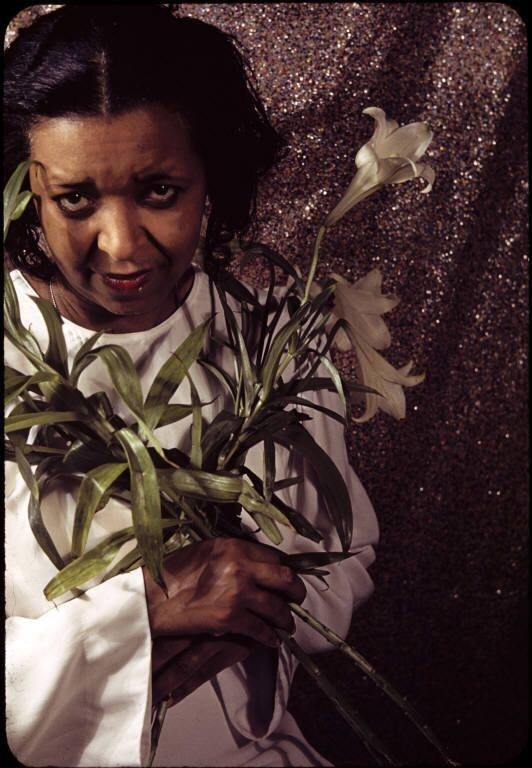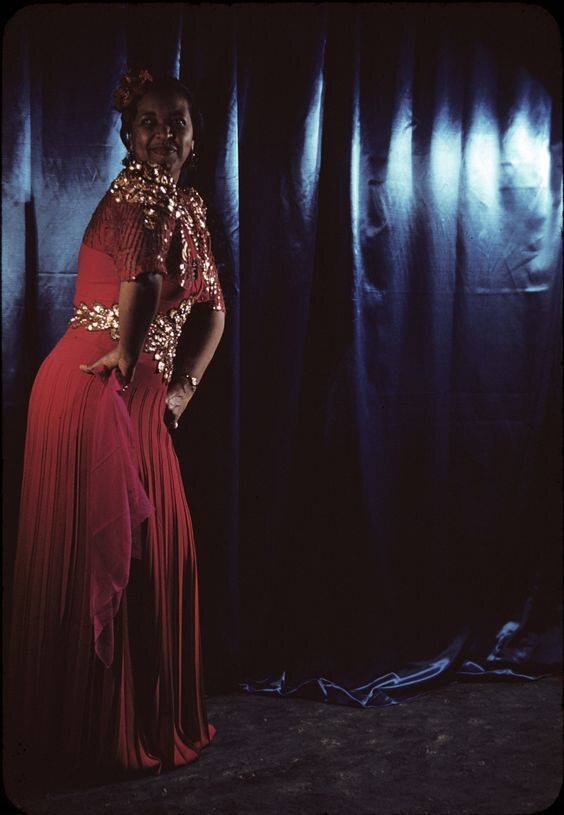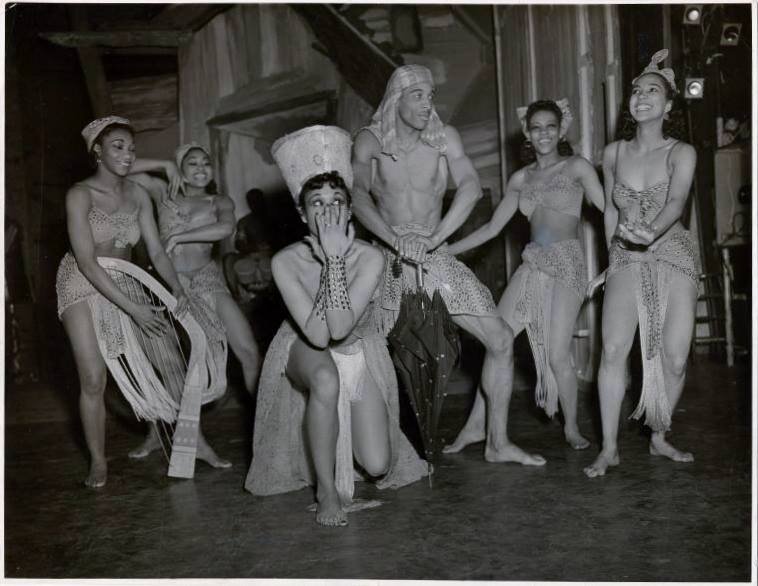Remembering Cabin in the Sky
Musicals about the black experience were not unheard of in the early years of the Golden Age of Broadway, despite a society that didn’t exactly embrace black culture. Shows like Porgy & Bess (1935), Carmen Jones (1943), St. Louis Woman (1946) and Lost in the Stars (1949) told compelling stories about this underrepresented faction of the population. What was harder to come by were musicals about black characters that delved into the world of fantasy and folklore. There was, however, the 1940 musical Cabin in the Sky which gave us both a serious story about people of color that also delved into their cultural heritage and folklore while employing a touch of fantasy.
Cabin in the Sky took an unlikely route to Broadway, with Lynn Root writing the story first, then taking it to choreographer George Balanchine who hoped to shape the show into his Broadway directing debut. Envisioning a musical, a composer would be required and Balanchine enlisted the services of Vernon Duke. Duke had been known predominantly in Broadway circles for writing music for revues such as Walk a Little Faster (1932) with E.Y. Harburg as lyricist, and for a handful of installments of the Ziegfeld Follies. Cabin in the Sky would be his first book musical. Duke needed a lyricist for the project and he first sought to entice Ira Gershwin, but her was already working on Lady in the Dark with Kurt Weill. Harburg was his next choice, but he turned Duke down, feeling that he wasn’t the right composer for the piece. In the end, Duke found an excellent collaborator in John Latouche (they would later work together on the musical Banjo Eyes starring Eddie Cantor).
The story of Cabin in the Sky followed a gambler named Little Joe who promises his wife Petunia that he will quit his sinful compulsion and start walking the straight and narrow. As he begins to make an effort to live a live a life of morality, he is murdered over his gambling debts. Little Joe is not allowed to enter into heaven upon his death. He is sent back to Earth for six-months to redeem himself and only if he achieves that, he will be allowed to enter the gates of Heaven. If he fails, he will be sent to Hell where Lucifer, Jr. presides. Lucifer and his seductive sidekick Georgia Brown do everything in their power to make sure Joe fails, tempting him with sin and prodding him towards it. Petunia, however, is not afraid to do battle for her husband’s soul. Cabin in the Sky may have felt a little derivative, seemingly taking from the Faust legend as well as the Ferenc Molnar playLiliom. We’d also see similar musicals down the road such as Carousel and Damn Yankees that pulled from these same sources.
One of the more fascinating and difficult aspects of the show’s creation was the cultural barrier between the predominantly Russian-born trio of Duke, Balanchine, and designer Boris Aronson, and the all-black cast, most of them from Harlem, who had difficulty understanding the creative leaders who often spoke mostly in their native tongues. This would often lead to tensions between cast and creative team, with Ethel Waters serving as an in-between, getting the translation through her blunt intervention and then delivering it to the other performers.
Cabin in the Sky opened at Broadway’s Martin Beck Theatre on October 25, 1940 where it ran for 156 performances. The original cast boasted such talents as Ethel Waters, Dooley Wilson, Rex Ingram, Katherine Dunham, and Todd Duncan. Balanchine directed and choreographed. The musical has not been revived on Broadway since its original run. The Duke/Latouche score, however, is quite good, with a few songs standing out such as “Taking a Chance on Love” and the title song getting play outside the context of the musical. The song “Dem Bones” has a delightful take on the James Weldon Johnson and J. Rosamond Johnson spiritual of the same name, itself drawing its inspiration from the biblical verse Ezekiel 37:1-14 and the prophets visit to the Valley of Dry Bones.
Mark Robinson is the author of the two-volume encyclopedia The World of Musicals, The Disney Song Encyclopedia, and The Encyclopedia of Television Theme Songs. His forthcoming book, Sitcommentary: The Television Comedies That Changed America,will hit the shelves in October, 2019. Hemaintains a theater and entertainment blog at markrobinsonwrites.com.


